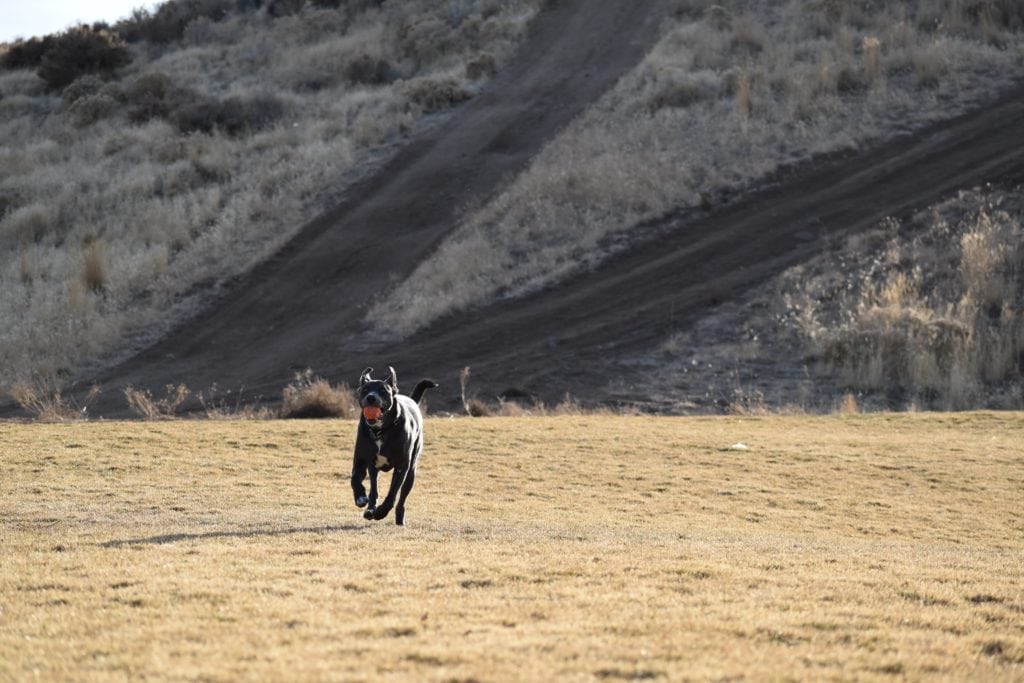Can Dogs Get Valley Fever? Holistic Treatment

If you live on the East Coast, chances are you have not heard of Valley Fever (VF). But, for members of our pack in the Southwest, VF is an all-too-common issue for dogs.
Valley Fever, whose proper name is coccidioidomycosis,goes by several names, including: “California disease”, “Desert rheumatism”, and “San Joaquin Valley Fever”. Some sources say that VF is reaching epidemic proportionsin dogs in Arizona. But knowing the cause, symptoms, and treatments for VF can protect your four-legged-friends.
How do dogs contract VF?
The most common type of VF in dogs starts in the pulmonary system (lungs). VF is caused by a soil-dwelling funguscalled Coccidiodes immitis, which is able to survive in the soil of the low desert region of Arizona, New Mexico, Texas,and southern parts of California. VF can also occur in Utah, Colorado, Mexico, and South America. These fungal spores can be kicked up in a dust storm, or by a dog’s routine sniffing and digging in the ground. When inhaled, these spores go into the lungs, mature, and reproduce. This can be very dangerous for dogs and people alike.
Symptoms of VF
According to the University of Arizona College of Medicine Tucson, the most common early symptoms of primary pulmonary Valley Fever in dogs include:
- coughing
- fever
- weight loss
- lack of appetite
- lack of energy
When the infection spreads outside of the lungs (or disseminates), it can infect the bones and organs. The University of Arizona College of Medicine Tucson states that symptoms of disseminated VF include:
- lameness or swelling of limbs
- back or neck pain, with or without weakness/paralysis
- seizures and other manifestations of brain swelling
- soft abscess-like swelling under the skin
- swollen lymph nodes under the chin, in front of the shoulder blades, or behind the stifles
- non-healing skin wounds that ooze fluid
- eye inflammation with pain or cloudiness
- unexpected heart failure in a young dog
- swollen testicles
Is VF contagious between pets and people?
The good news is that VF is not contagious between your dog and other pets unless the infected pet bites the healthy pet, or your dog and people. In fact, the disease of VF is rare in people. Even in situations of bites between an infected pet and a healthy pet, the odds of your healthy pet contracting the disease are still fairly low. However, you should consult your vet immediately if you think your pet has VF, or might bite another pet after contracting VF.
Can you prevent VF?
Since treating the soil would be costly and nearly impossible to eliminate the fungus altogether, there is no surefire way to prevent VF. Try to avoid allowing your pet to dig in the dust outside. It may be easier to keep your pet inside or take them on walks to places with grass covering the ground.
How do you treat VF?
VF will need to be treated with the help of your veterinarian. Your dog will have to undergo testing, potentially including X-rays and a titer test. Your dog will also likely need to take an antifungal medication for up to 6 months. You may also want to introduce colloidal silver as an an antifungal into your dog’s diet, as well as CBD.
Can CBD help dogs suffering from Valley Fever?
CBD oil can be helpful in the treatment of your pet, because it can reduce inflammation. It can also help treat some of the symptoms of VF including lack of appetite. ingredients also include essential oils which may be beneficial to treating VF, including coconut oil which can help with coughing, and ginger oil which is an antifungal.
Remember, check with your holistic veterinarian to make sure that your pet’s supplements remain balanced.
Angela Ardolino, a certified cannabis and fungi clinician, brings over 20 years of expertise to the field of holistic pet wellness. As a graduate of the inaugural Medical Cannabis for Therapeutic Use program at the University of Vermont School of Medicine, she is a passionate advocate for safe, natural, and ethically-grown whole plant and fungi medicine tailored for pets.
Committed to the highest standards, Angela continues to educate and inspire pet parents through her popular podcast, Your Natural Dog, where she hosts experts to discuss holistic pet care, natural remedies, nutrition, and training. Follow Angela Ardolino on her website, Facebook, Instagram, TikTok, and YouTube to stay updated on her mission to educate and empower pet parents everywhere.